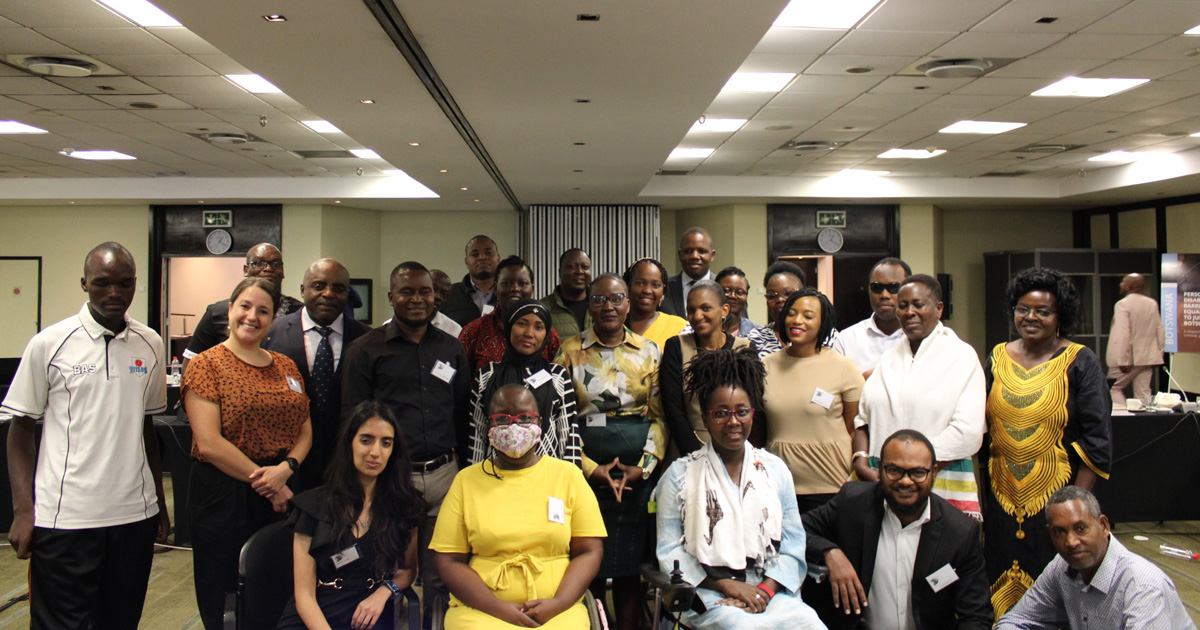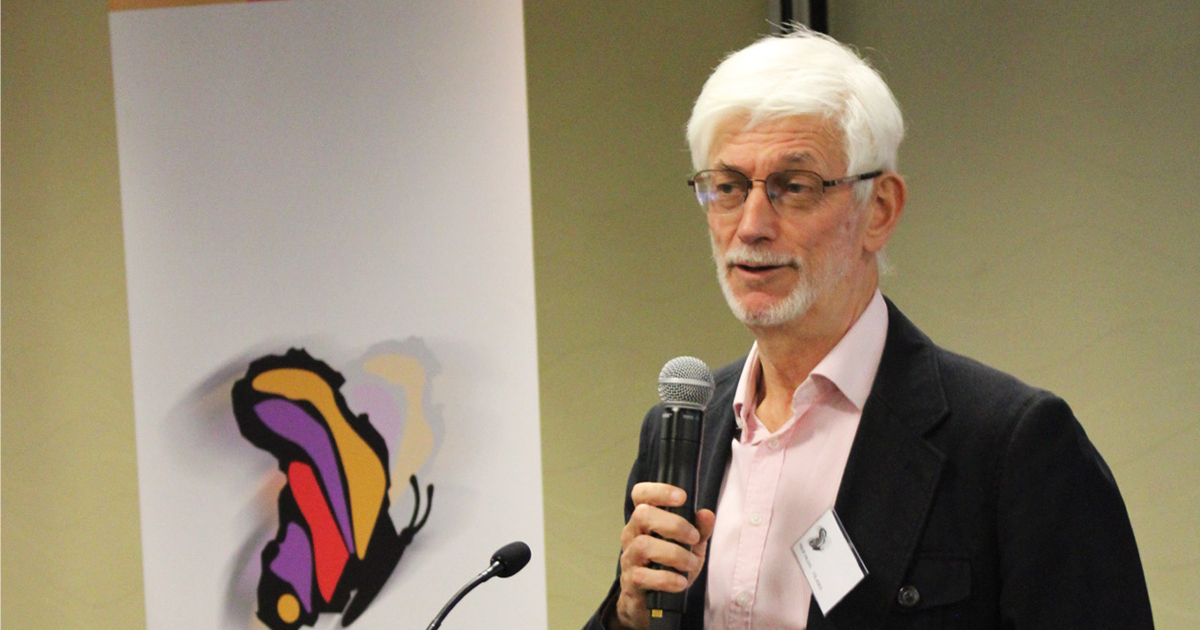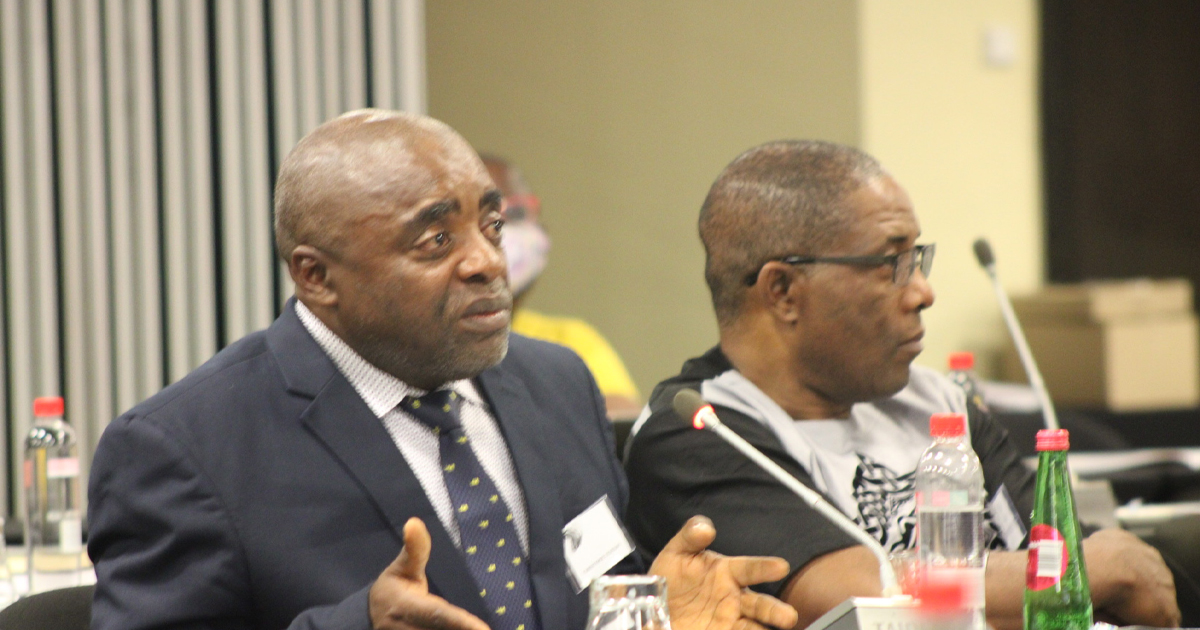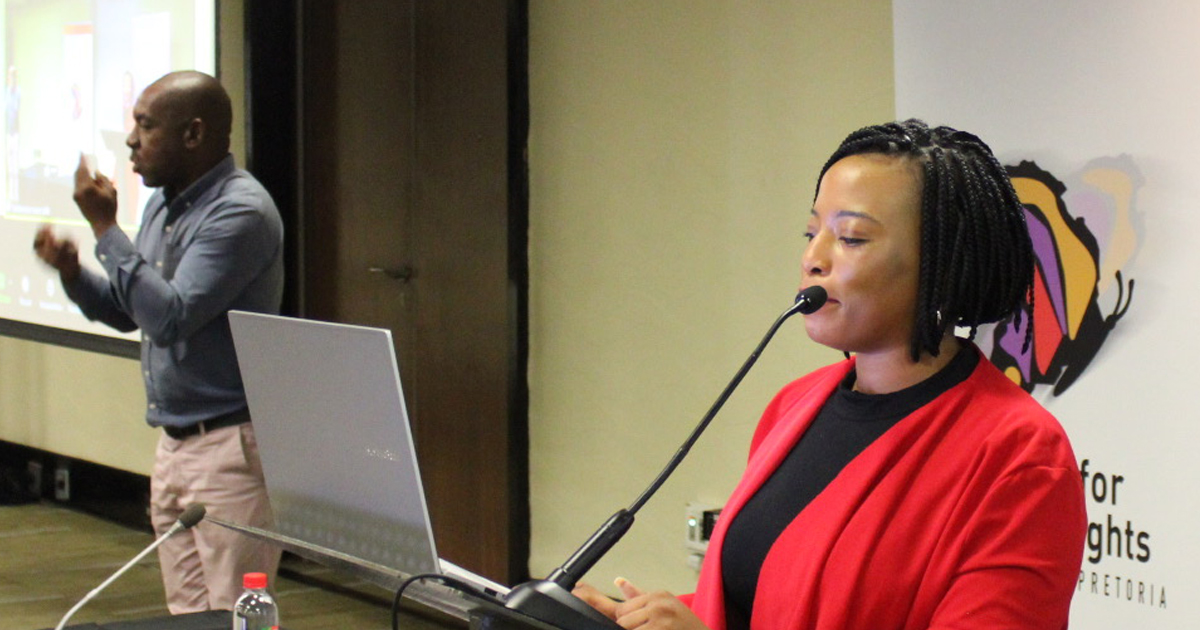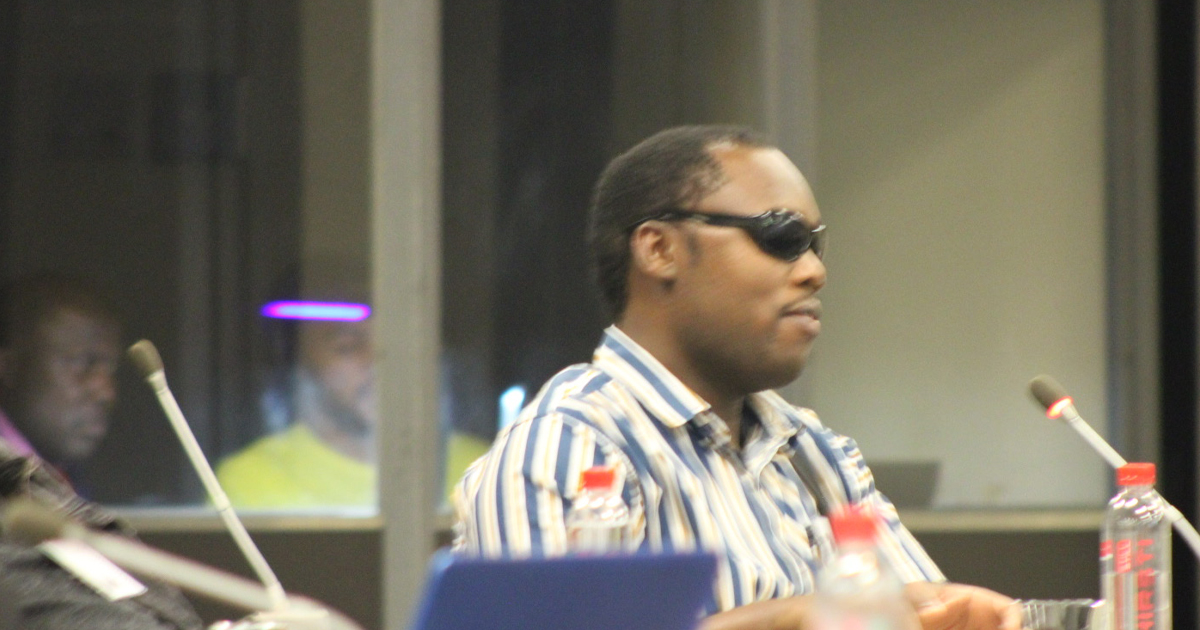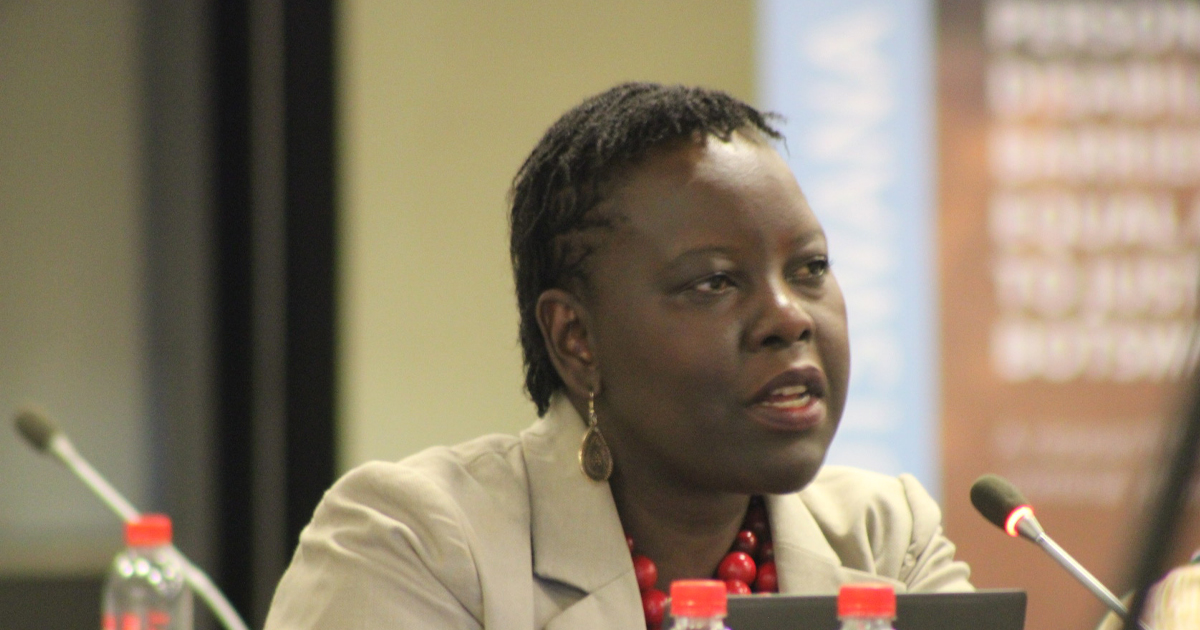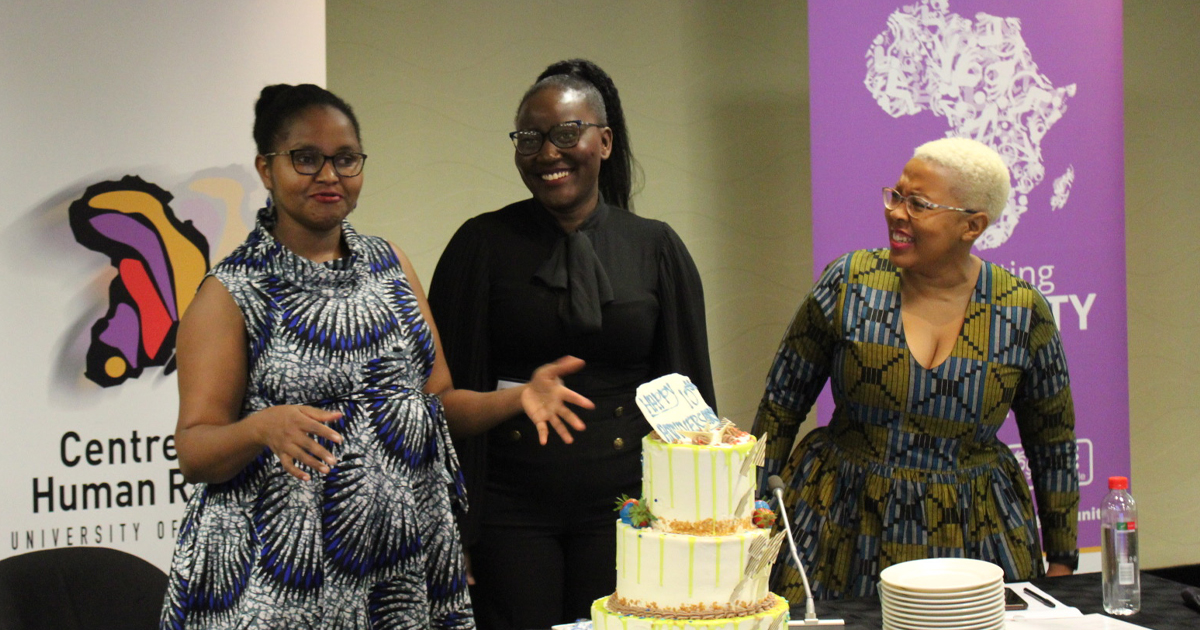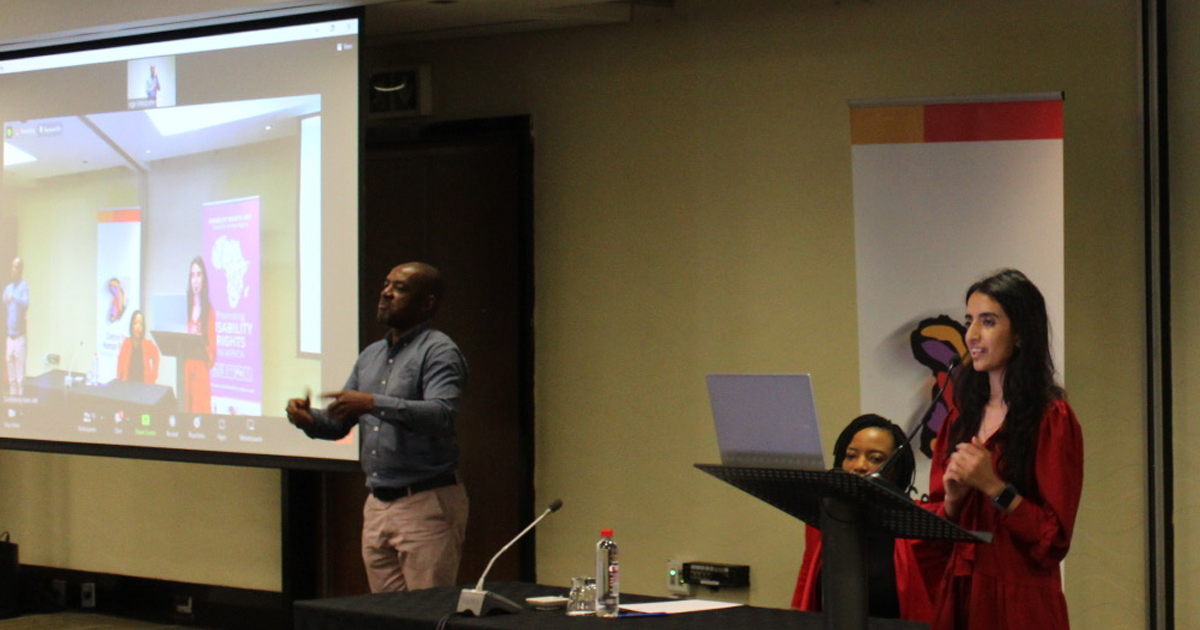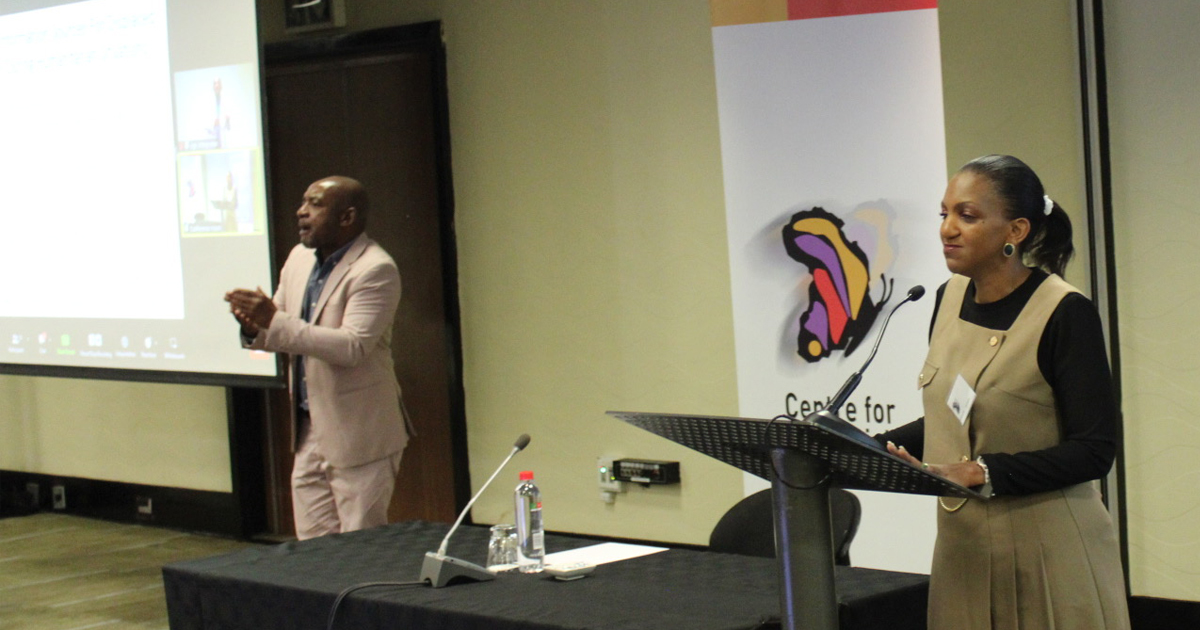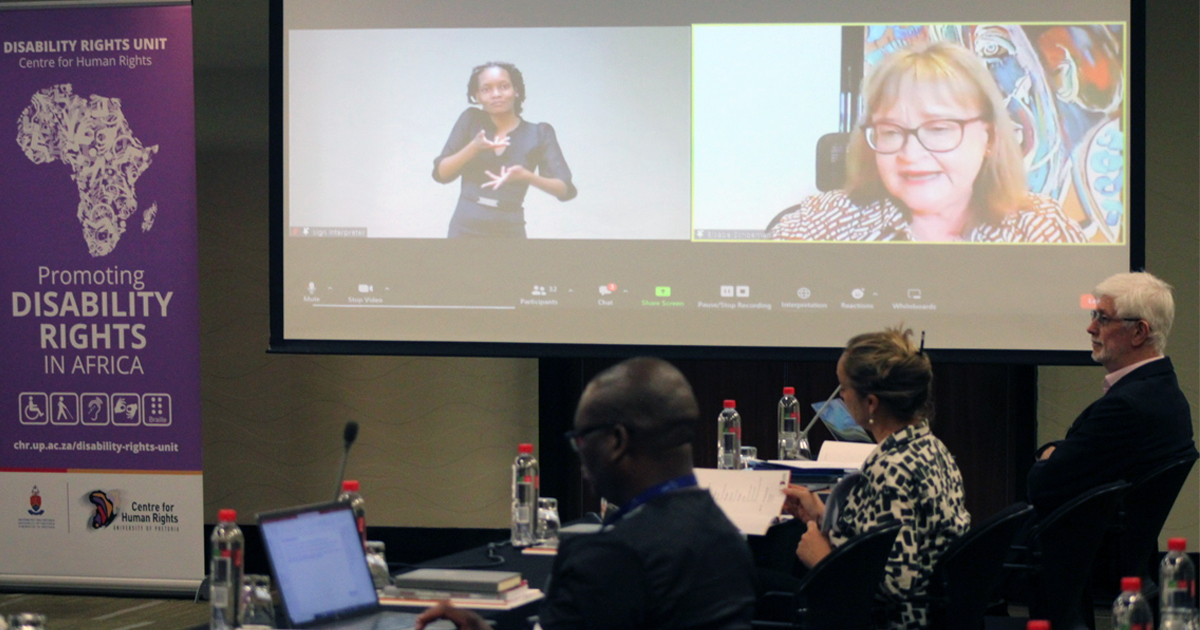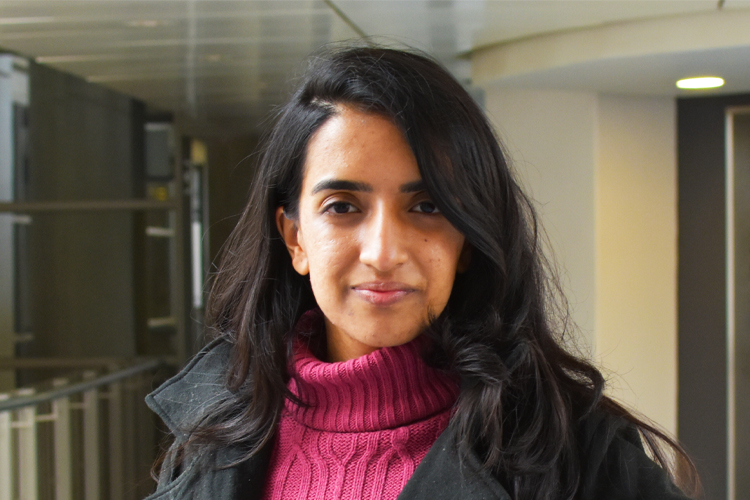On 17 November 2022, the 10th annual disability rights in Africa Conference organised by the Disability Rights Unit at the Centre for Human Rights, University of Pretoria kicked off at Southern Sun hotel OR Tambo, South Africa. The theme of this year’s conference is ‘migration, displacement and disability: a human rights response’. The aim of the two day conference is to critically appraise laws, policies, practices, programmes, polities and ideologies that relate to migration and displacement and suggest remedial measures for protecting and ensuring the rights of migrants and internally displaced persons (IDPs) with disabilities.
Persons with disabilities who migrate or are displaced experience numerous violations of their human rights as was highlighted by Prof. Elsabe Schoeman, the Dean Faculty of Law, University of Pretoria, in her opening remarks. Environmental disasters and conflict situations in Africa and across the globe serve as push factors for the migration and displacement of people. They create situations of risk to persons with disabilities, severely hindering mobility. Ms Gorretti Byomire, the Chairperson, Makerere University Business School, in her keynote address stated that many persons with disabilities are left behind in situations of risk with little access to health care or rehabilitation or support services, lack of carers and exposure to violence. Some are forced to move, becoming IDPs living in IDP camps. Others are forced to travel to other countries, risking being declared illegal or subjection to restrictions of personal liberty without access to basic services.
The Conference brought together stakeholders interested in promoting the rights of persons with disabilities who are under migration, who have migrated or who have been displaced. The first day of the conference focused on the status of migrants, refugees and internally displaced persons with disabilities in Africa, impact of climate change on migration and displacement, role of the media and the courts, migration and displacement in the context of humanitarian conflict and contemporary challenges. Notably, the presenters highlighted the challenges faced by persons with disabilities in Africa and recommended various measures such as integration policies, anti-discrimination mechanisms, training and empowerment, need for data and more studies and the importance of developing guidelines that will ensure that migrants and IDPs with disabilities are protected.
The participants also highlighted the importance of the Convention on the Rights of Persons with Disabilities (CRPD) which calls for States Parties to take all necessary measures to ensure the protection and safety of persons with disabilities in situations of risk, including situations of armed conflict, humanitarian emergencies and the occurrence of natural disasters. The Protocol to the African Charter on Human and Peoples’ Rights on the Rights of Persons with Disability (the African Disability Rights Protocol) and the African Union Convention for the Protection and Assistance of Internally Displaced Persons in Africa (Kampala Convention) was also leveraged by the speakers in a bid to respond to the risks posed by migration and displacement of persons with disabilities in Africa. To remedy these challenges, these documents require States Parties to protect the rights of all persons including persons with disabilities against being arbitrarily displaced and, in so doing, to respect provisions of international law that are relevant for the protection of migrants and IDPs with disabilities. The Centre commends the participants for sharing their experiences and innovative approaches towards protecting and ensuring the rights of persons with disabilities in instances of migration and displacement.
Day two of the Disability Rights Conference kicked off on 18 November 2022 with Sabeeha Majid reinforcing the overarching theme at the heart of this year’s conference: migration, displacement and disability. Following Ms Majid’s remarks, a film titled ‘persons with albinism on the move’ produced by the Centre for Human Rights in collaboration with the Mandate of the United Nations Independent Expert on the enjoyment of human rights by persons with albinism was shared. Thereafter, the speakers discussed the sub-theme of intersectionality in the lives of persons with disabilities. Particularly, they shared the challenges and barriers that persons with albinism, stateless persons, persons with intellectual disabilities, persons with psychosocial disabilities, sexual minorities and children with disabilities face during migration and displacement. The participants also sought creative solutions, for example, they stressed the need for a comprehensive approach to ensuring the rights of IDPs, migrants and refugees with disabilities, including addressing its root causes. They called for cooperation and collective action based on international human rights law, rule of law and international best practices.
Post lunch session was dedicated towards the commemoration of the annual conference ten-year anniversary to mark how far the conference has come. The speakers that took the stage gave a brief history of how the conference began, where we are now and where it is going. A powerful common theme that the presenters emphasised was the importance and impact of the new partnerships created during the conference. Illustrating this, Dianah Msipa, the Disability Rights Manager, Centre for Human Rights described the conference as a unique opportunity for cooperation among scholars, researchers, practitioners, human rights activists, advocates for law reform, civil society groups, lawyers, and policymakers and analysts from across Africa and beyond to address the human rights violations faced by persons with disabilities in the African region with a view to suggesting ways of strengthening human rights responses.
Overall, the two day conference enabled rich discussion and reflection. It gave the opportunity to examine pressing African issues of migration and displacement, especially with regards to ensuring the rights of persons with disabilities. Extracting some key recommendations from the conference on how to ensure the human rights of migrants and IDPs with disabilities, the Assistant Director, Centre for Human Rights, Dr Nkatha Murungi closed the session by underlining the need to honour the rights of persons with disabilities in a non-discriminatory manner, the need to bring forward specific new laws and plans of action and the need (in the meantime) to ensure a minimum level of access to the essential services and devices in order to ensure the rights of IDPs, migrants and refugees with disabilities. In her closing remarks, Dr Nkatha Murungi also acknowledged that the conference would not have been possible without the full cooperation of all stakeholders. She extended her thanks to all the Disability Rights Unit members for their hard work and dedication. She further highlighted the importance of meaningful engagement with, and participation of persons with disabilities, their representative organisations and other major stakeholders in the Conference. She expressed hope and confidence that the present and past disability rights conferences have served to promote the participation and engagement of persons with disabilities and their organisations in relevant developments, including in migration and displacement.
For more information, please contact:

